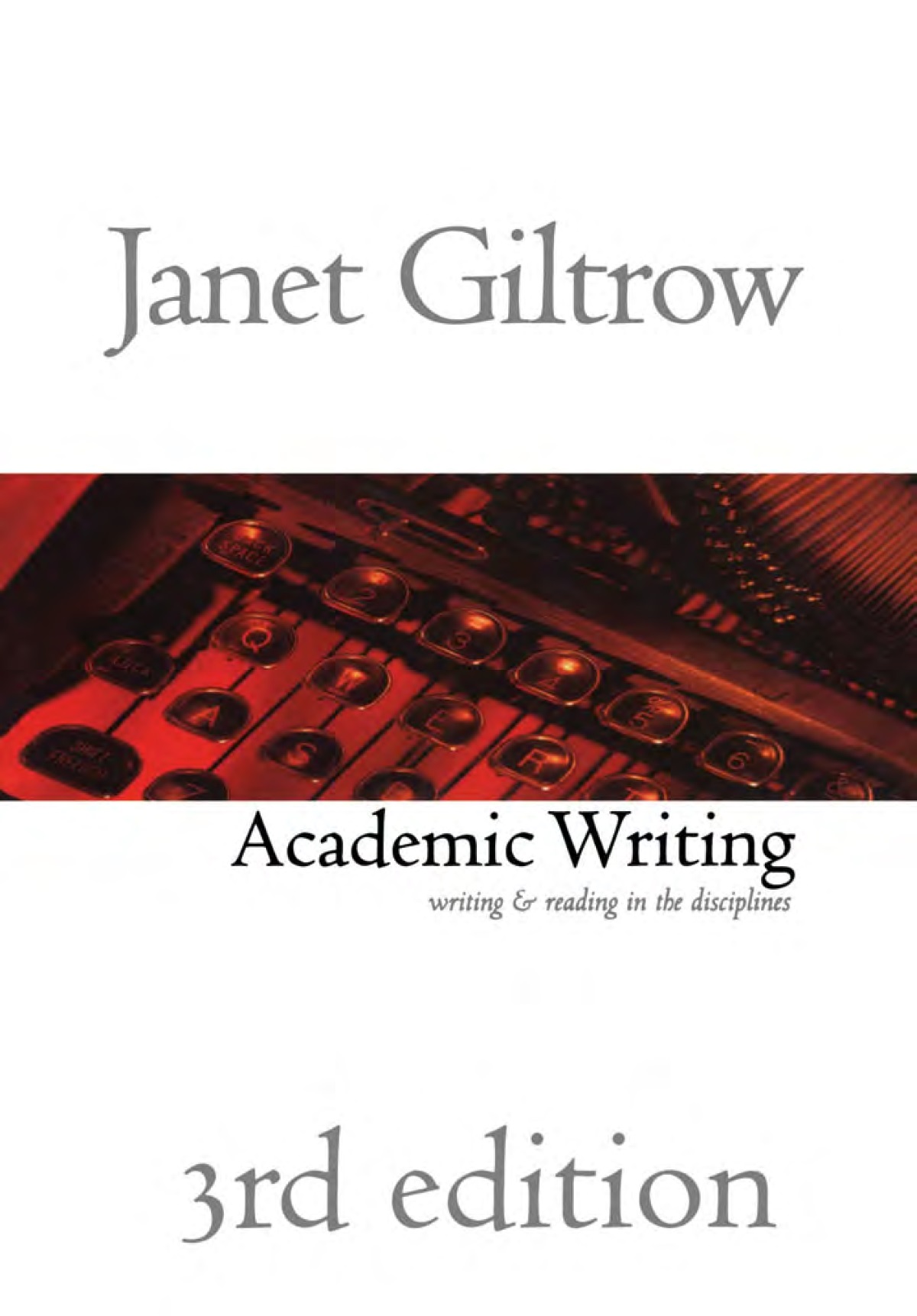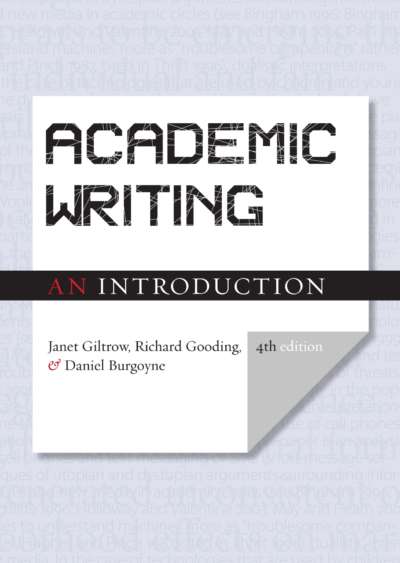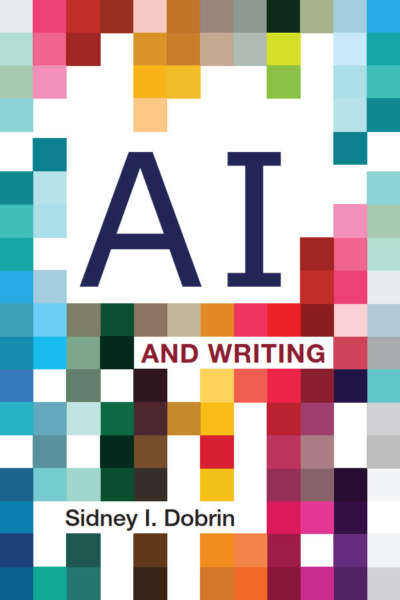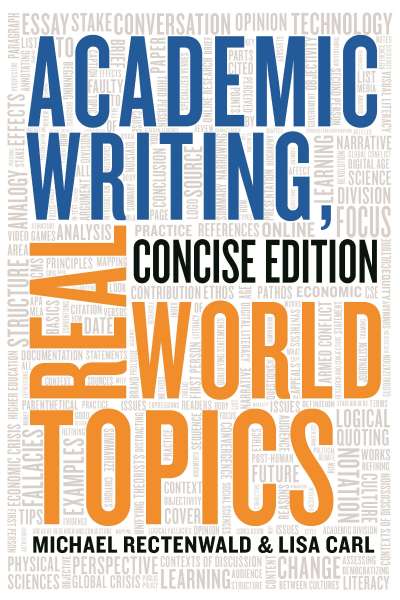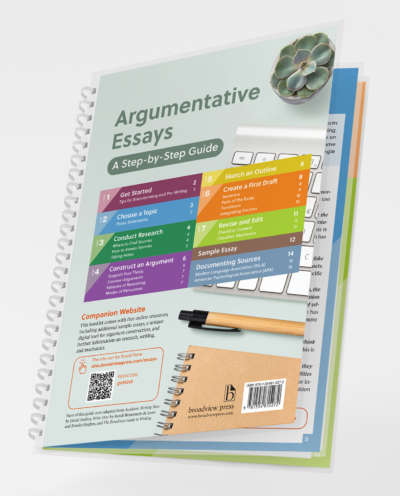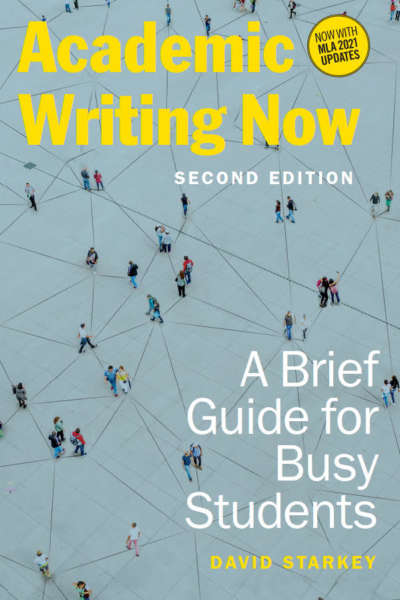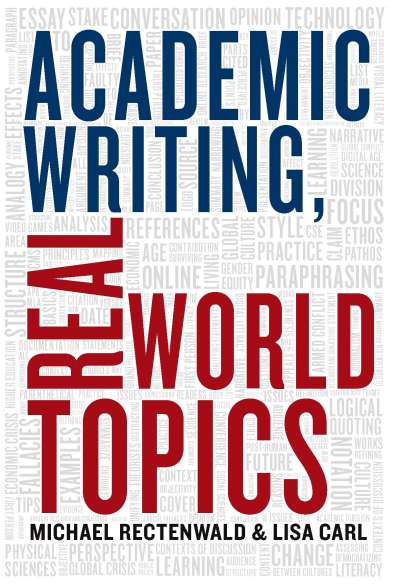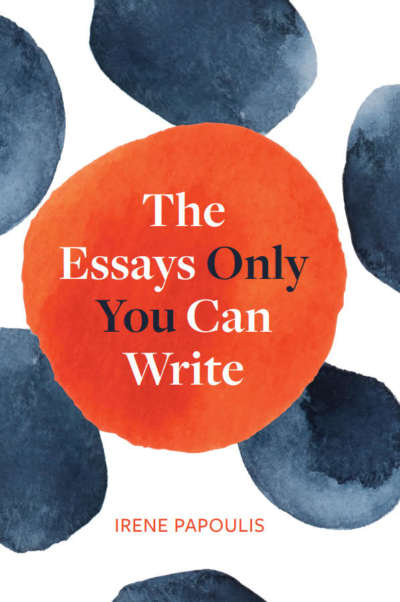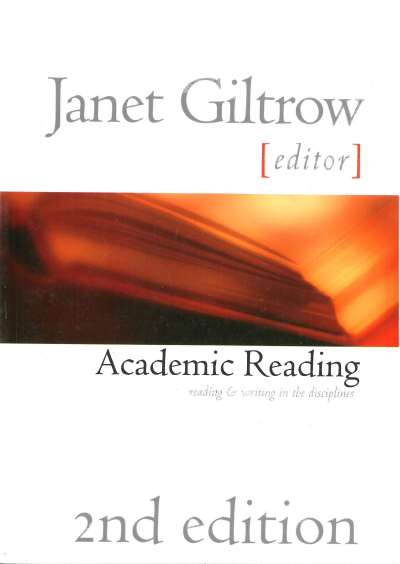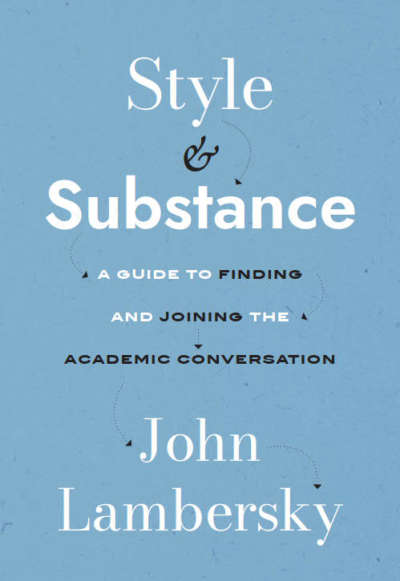Academic Writing is a unique introduction to the subject. As the author puts it in her preface, “this book develops from a strong claim: namely, that style is meaningful.” In developing that theme, the author draws meaningfully on theory, especially genre theory, while remaining grounded in the particular. Giltrow presents and discusses examples of actual academic writing of the sort that students must learn to deal with daily, and to write themselves. As newcomers to the scholarly community, students can find that community’s ways of reading and writing mysterious, unpredictable and intimidating. Academic Writing demystifies the scholarly genres, shedding light on their discursive conventions and on academic readers’ expectations and values. Throughout, Academic Writing respects the student writer; it engages the reader’s interest without ever condescending, and it avoids the arbitrary and the dogmatic.
The book also offers abundant exercises to help the student develop techniques for working productively at each stage of the scholarly writing process; mastering and summarizing difficult scholarly sources; planning; and revising to create good working conditions for the reader.
The third edition of Giltrow’s extremely successful book incorporates extensive revisions that integrate the theoretical perspectives of genre theory into the whole of the book in a more organic fashion; the changes are designed to make the book both more attuned to scholarly practice and more accessible to the undergraduate student.
Giltrow’s Academic Reading is designed as an accompanying reader for Academic Writing.
Comments
“In no other composition text have I found as rich an explanation of qualitative research methods—a systematic approach to research and analysis.” — Nancie Burns-McCoy, University of Idaho
“Academic Writing is a superb book. It is steeped in contemporary rhetorical theory, packed with examples of writing in the disciplines, and full of unusual and effective exercises. The book is eminently practical: it helps the reader understand and enter into the discourse of academic life.” — Anthony Pare, Director, Centre for the Study and Teaching of Writing, McGill University
Preface
1 Introducing Genre
- 1A Hearing Voices
1B Hearing Genres
1C High-School vs. University Writing
1D The University as Research Institution
2 Citation and Summary
- 2A Introducing Scholarly Citation
2B Is Citation Unique to Scholarly Writing?
2C Why Do Scholars Use Citation?
3 Summary
- 3A Noting for Gist
3B Recording Levels
3C Using Gist and Levels of Generality to
Write Summary
3D Establishing the Summarizer’s Position
3E Reporting Reporting
3F Experts and Non-Experts
4 Challenging Situations for Summarizers
- 4A High-Level Passages
4B Low-Level Passages
4C Summarizing Narrative
5 Readers Reading I
- 5A Who Do You Think You’re Talking To?
5B Traditions of Commentary on Student Writing
5C An Alternative to Traditional Commentary:
The Think-Aloud Protocol
5D Adapting the Think-Aloud Protocol in the
Writing Classroom
5E Reading on Behalf of Others
5F Reliability of Readers
5G Presupposing vs. Asserting
6 Orchestrating Voices
- 6A Making Speakers Visible: Writing as Conversation
6B Orchestrating Scholarly Voices
6C The Challenges of Non-Scholarly Voices
6D Orchestrating Academic Textbooks and Popular Writing
6E The Internet
6F Research Proposals
7 Definition
- 7A Dictionaries
7B Appositions
7C Sustained Definitions
7D The Social Profile of Abstractions and Their
Different Roles in Different Disciplines
8 Introductions
- 8A Generalization and Citation
8B Reported Speech
8C Documentation
8D State of Knowledge and the Knowledge Deficit
8E Student Versions of the Knowledge Deficit
9 Readers Reading II
- 9A Think-Aloud and Genre Theory
9B The Mental Desktop
10 Scholarly Styles I: Nominal Style
- 10A Common and Uncommon Sense
10B Is Scholarly Writing Unnecessarily Complicated,
Exclusionary, or Elitist?
10C Nominal Style: Syntactic Density
10D Nominal Style: Ambiguity
10E Sentence Style and Textual Coherence
11 Scholarly Styles II: Messages about the Argument
- 11A Messages about the Argument
11B The Discursive I
11C Forecasts
11D Emphasis
12 Making and Maintaining Knowledge I
- 12A Making Knowledge
12B Method Sections
12C Qualitative Method and Subject Position
13 Making and Maintaining Knowledge II
- 13A Modality
13B Other Markers of the Status of Knowledge
13C Tense and the Story of Research
14 Conclusions and the Moral Compass of the Disciplines
- 14A Conclusions
14B The Moral Compass of the Disciplines:
Research Ethics
14C The Moral Compass of the Disciplines:
Moral Statements
Glossary
References
Subject Index
Index of Researchers Cited
Janet Giltrow is an Associate Professor in the English Department at the University of British Columbia. Her articles have appeared in such journals as American Literature, Sinn und Form, Style, Technostyle, Studies in the Novel, Modern Language Review, and Technical Writing and Communication, and in collections on feminist narratology, genre theory, and ESL, as well as in collections on other topics in rhetoric and literary studies. She is winner of the 3M Teaching Fellowship.

